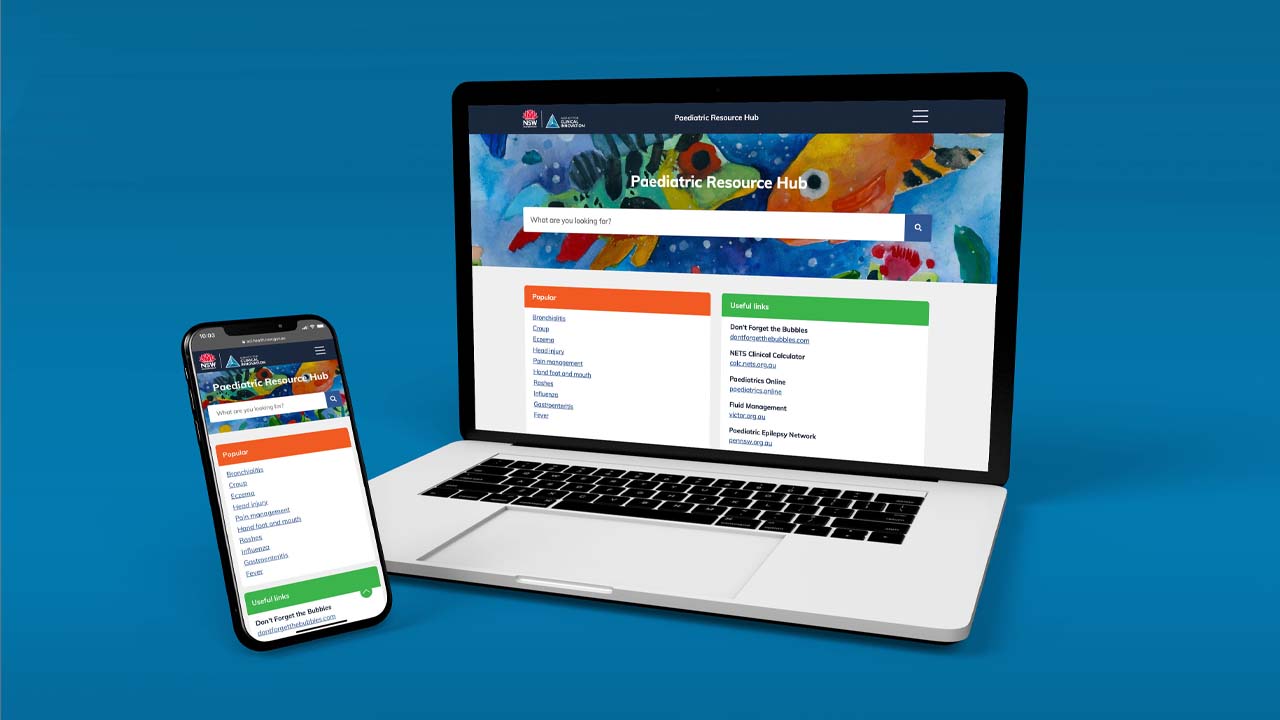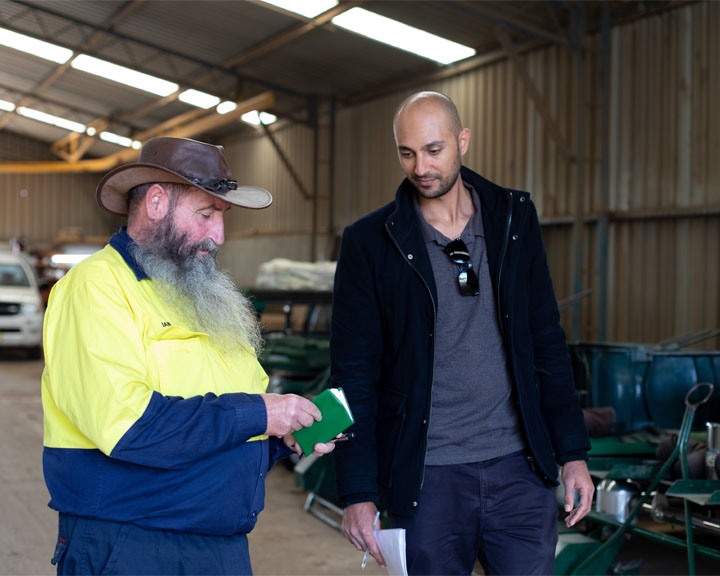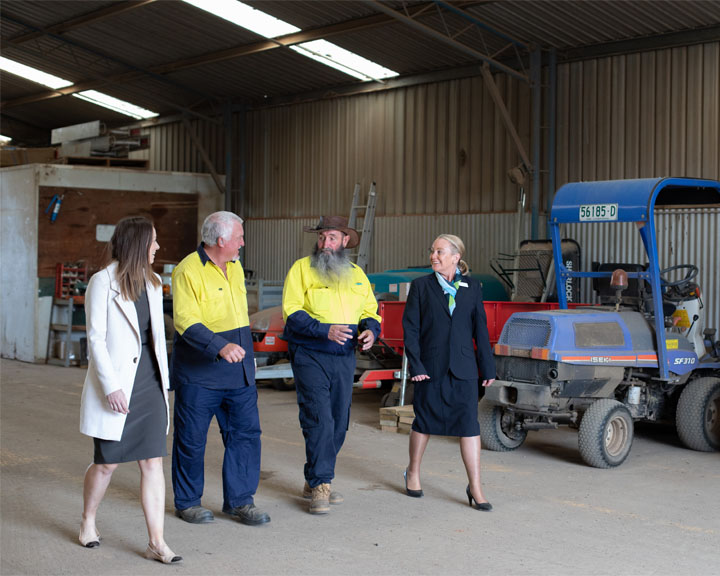Working together on
clinically led innovation
We draw on clinical leadership to build and drive innovation that will change practice and improve health outcomes. We have broadened clinical engagement to ensure our networks are vibrant, sustainable and dynamic in membership and leadership.
Improving outcomes for people seeking drug and alcohol treatment
It was profoundly rewarding for staff and clients to witness the dramatic improvement in concentration, memory recall and calmness that clients in the program experienced.
A groundbreaking Alcohol and Drug Enhancement (ACE) program offers a new way for clinicians to support people in NSW who are seeking treatment for their alcohol and drug use.
- Led by the ACI’s Drug and Alcohol Network, the ACE program includes screening tools, brief intervention and a 12-session cognitive remediation program.
- The program helps to improve a person’s brain function, so they remain in, and benefit from, alcohol and drug treatment.
- Program trials showed a large increase in the number of people completing drug and alcohol treatment, and a reduction in brain function impairment among participants.
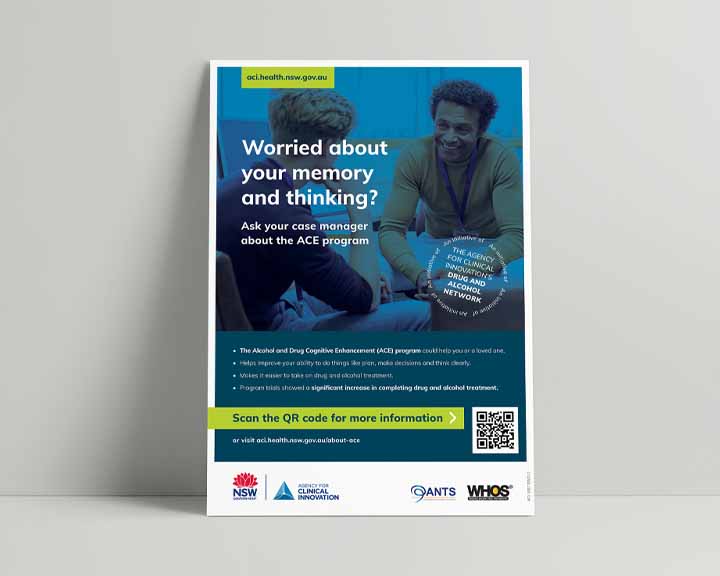

Optimising capacity and patient flows in intensive care
The ICU Exit Block project is taking a whole-of-hospital approach to optimising intensive care capacity – ensuring we deliver the right care, for the right patient, in the right place.
The initial pilot research study led by the ACI’s Intensive Care NSW, followed by a statewide rollout in two phases across NSW ICUs.
Preliminary project data has demonstrated:
- approximately 50% reduction in the average discharge preparation time at Hornsby Ku-ring-gai Hospital, from 3.6 hours to 1.8 hours
- 13% reduction in the percentage of total ICU patients at Hornsby Ku-ring-gai Hospital that experienced delays in exiting the ICU, from 35% to 22%.
50% reduction
in average discharge preparation time
Supporting equitable access to NSW genomics services
We brought together the latest evidence and clinical expertise to develop the Clinical genomics model of care.
- Informed by major advances in the understanding of the human genome, genetic variation and disease.
- The model supports equitable access to NSW genomics services.
- It identifies four clinical priority areas:
- Access
- Timeliness
- Optimising health
- Ongoing care
- A toolkit supports genomic services to implement the model of care.
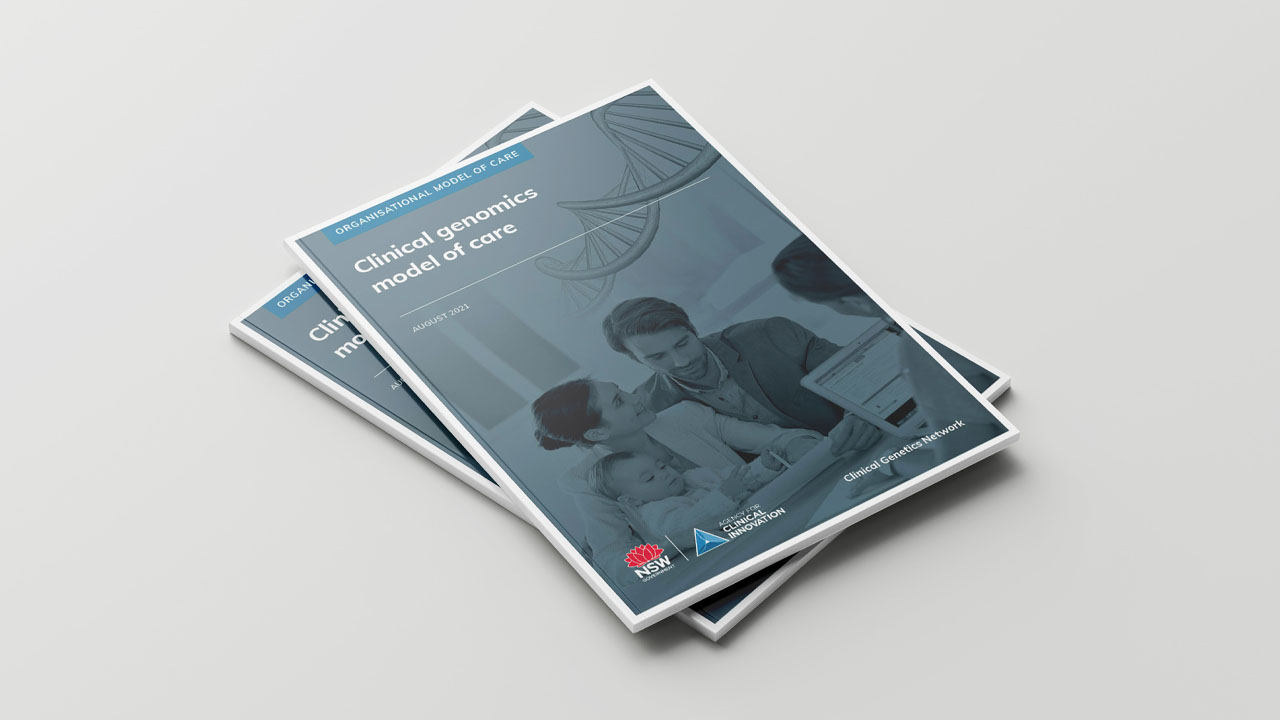
Enhancing employment opportunities for people with brain injury
The Vocational Intervention Program (VIP) is supporting people with traumatic brain injury to access specialist employment services.
- The ACI’s Brain Injury Rehabilitation Network facilitated partnerships between 12 brain injury services in NSW and vocational/employment services, to support people to return to work.
- To date, 173 people have engaged with the program, with 66 people obtaining employment.
Quick access to clinical guidance for emergency clinicians
The ACI’s Emergency Care Institute developed a web-based app, providing easy access to evidence-based guidance on emergency medical procedures at the point of care.
- The Emergency Procedures App provides guidance on almost 100 procedures, with half featuring video content.
- Designed as a training tool, as well as a memory aid for experienced clinicians.
- A quick access guide with QR code was developed for display in emergency departments.
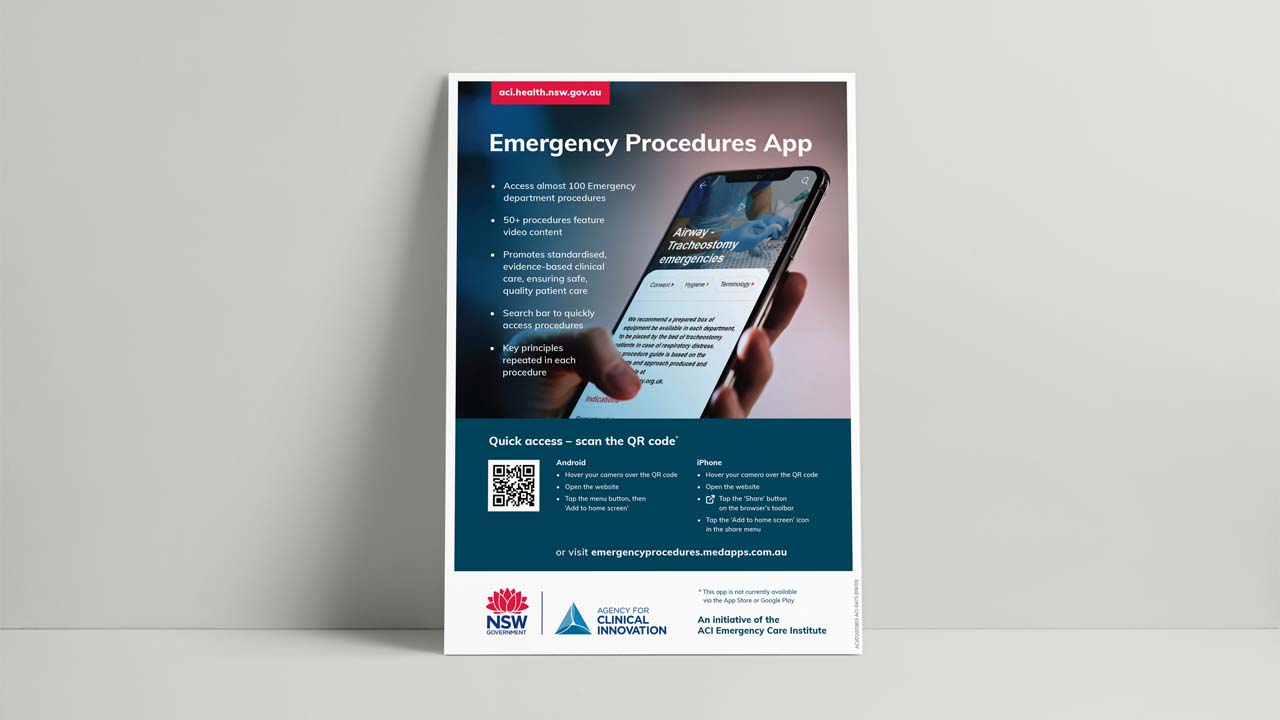
More than 25,000 users
from 157 countries
have accessed the app.
One-stop access to paediatric healthcare resources
The Paediatric Resource Hub provides digital access to the latest paediatric healthcare information, from Australia’s most respected institutions.
- Developed by the ACI’s Paediatric Network, the hub provides access to almost 3,000 trusted paediatric healthcare resources.
- Collates resources on 24 paediatric and child health topics.
- Search by topic, type of resource and source.
- Saves time by finding best-practice paediatric healthcare information, relevant to a person’s work.
